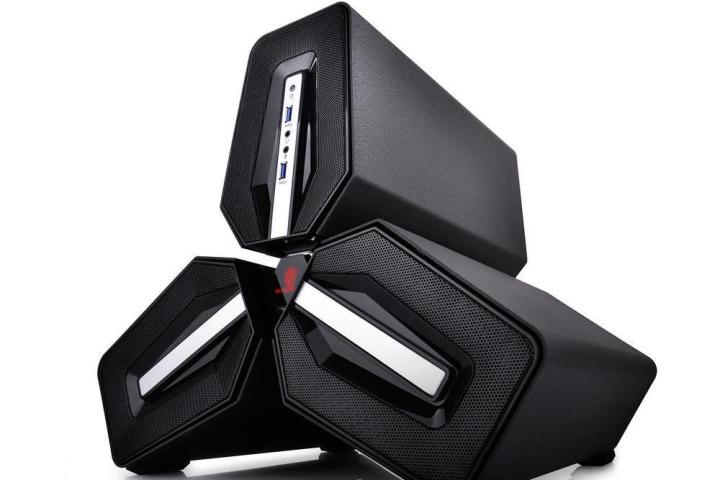
Wholly unlike any other case we’ve seen before, the Tristellar looks like something straight out of science fiction. The case features three different “blades,” each of which house critical components linked together by cables running through the central core of its base.
The design makes sense, when you consider the fact that 99 percent of overheating happens when two major components are crammed too close together in the same case.
The Tristellar gets around this by segregating some of the hottest parts of a desktop into three individual blades. The first will hold the motherboard, and will have enough room to spare for a 120mm liquid cooling radiator/loop system in case you really want to keep things as sub-zero as possible. The next blade will house the power supply along with two traditional 3.5″ HDDs and an optical drive, while the last will make room for one 320mm graphics card, and three 2.5″ SSDs.
The case will clock in at a back-crunching 35 pounds with nothing installed inside, and feature space for two USB 3.0 ports as well as audio inputs/outputs facing out front.
Until now, the only way you could get your hands on a Tristellar case was by purchasing CyberPowerPC’s pre-built Trinity system. Now the company says they plan to put out Tristellar a la carte, opening it up to anyone who has a spare $399 laying around that they’re willing to drop on just the shell of their computer, sans any major components.
It may be a little rich for most people’s blood, but considering most PC mods are made to turn heads these days, the Tristellar is almost certainly worth the cost of the conversations it will spark on its own.
Editors' Recommendations
- I can’t wait to try out these upcoming mini-ITX cases
- This PC case emits animated holograms from both the side and top
- You’ve never seen a PC case like this mini-ITX chassis from Swedish designer


